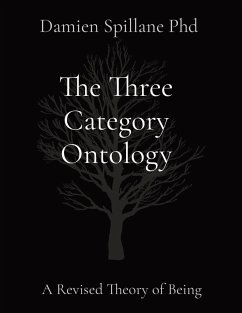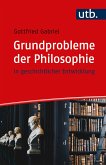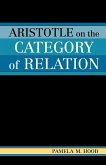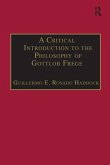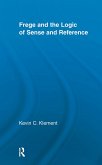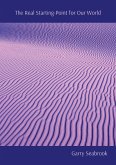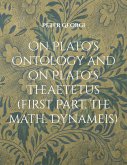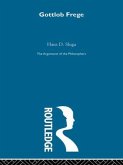The heart and soul of analytic philosophy is analysis: the taking apart of arguments and assumptions and examining their parts to see if they stand up to rational scrutiny and intuition. This has certainly been the lofty goal of philosophers since its inception. But what if it turns out that none of this is true. Instead the pioneers of modern philosophy had a certain set of unquestioned assumptions built into their very doctrines of analysis so that those very assumptions were never questioned and alternatives never tested or explored. It has been said many times that all philosophy is footnotes to Plato. This is not quite true. As this work shows, all modern philosophy inherits its key set of assumptions from the ancient philosopher Parmenides. And even more scandalously, Parmenides derived his key theory of being from a mystical encounter with the ancient Greek gods. The topogrophy of his being became the topogrophy of practically every philosopher's conception of being since. Since the 19th century the logic centred modern approach to philosophy masked the metaphysical assumptions that provided the underlying explanations of existence and our knowledge of things in the world. That foundational structure was not new but was rooted in Parmenides. Such an assumption was assumed by these philosophers and not argued for. But the later leading lights in this tradition followed the formal conditions of their ontology to their logical conclusions. Those conclusions showed that what was thought to be the theory's main advantage - maximal generality - was its undoing since, due to the dearth of specified complexity within the theory, it was not able to explain the multifarious things in the world and the structure of perception. Therefore a new way of doing ontology is called for. Here I offer just three non-univocal formal conditions for existence that are abstracted from - and not imposed on - the world. Three categories that exhaustively explain the structure of objects and their interactions with each other in such a way that it solves many philosophical conundrums and explains what we perceive in the world. The icing on the cake for this new theory of being is that it provides a uniquely satisfactory theory of the Trinity. Indeed, in a fascinating twist it shows that the being of the world mirrors the being at the heart of the trinity as expressed in the Christian scriptures.
Hinweis: Dieser Artikel kann nur an eine deutsche Lieferadresse ausgeliefert werden.
Hinweis: Dieser Artikel kann nur an eine deutsche Lieferadresse ausgeliefert werden.

